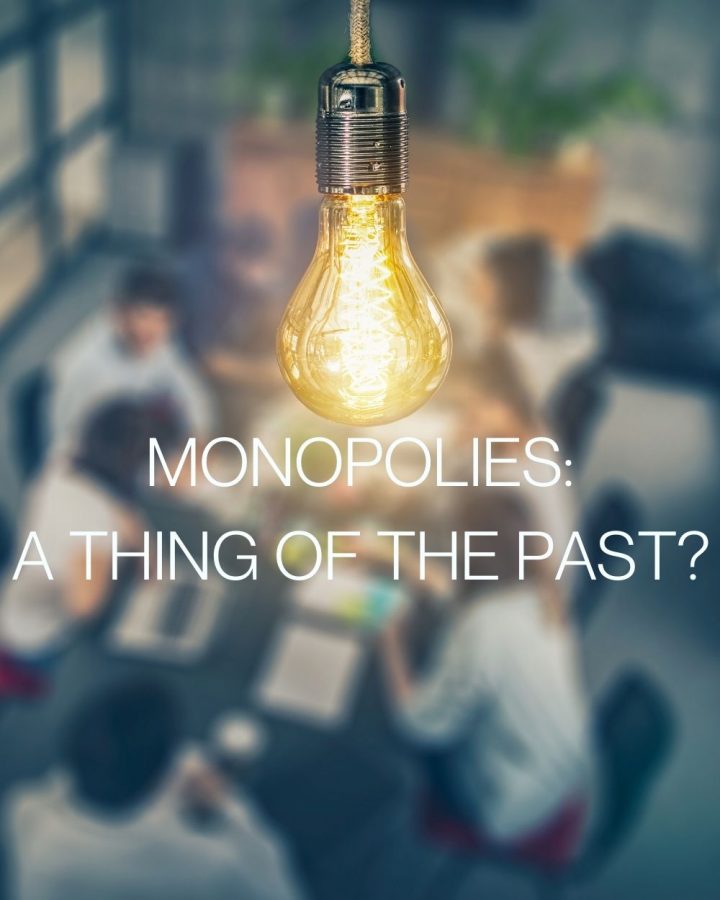Google And Facebook: Innovative Companies Or Greedy Tyrants?
February 26, 2021
Monopoly is a fun, family-friendly game where players attempt to buy all the spaces on the board. Real-life monopolies are not fun or friendly, but rather cruel and bad for the economy.
A monopoly is when a single company (or person) has exclusive control of the supply of a good or service. The main concern with monopolies is that since the company has complete control, it can make the prices for its product extremely high, and pay workers low wages. Obviously, this is not a good thing. Monopolistic companies also have anti-competition tactics, which stop any other company from starting up. There are fewer chances for jobs. This can be damaging to the economy, and people’s lives. It is for this reason that there are laws preventing monopolies from forming, such as the Sherman Antitrust Act and the Clayton Antitrust Act
As of December 2020, both Google and Facebook have been sued for being monopolies and having anti-competitive policies. The Federal Trade Commission (FTC) alleged that Facebook has imposed “anti-competitive conditions on software developers – to eliminate threats to its monopoly.” As for Google, many states have accused it of using its dominance in advertising to overcharge publishers and inhibit the competition. These allegations are not far-fetched at all and should be considered by the consumers.
Facebook has a net income of $29.15 billion. The company owns many social networking companies, such as Messenger, WhatsApp, and Instagram. Facebook has been buying up social networking companies for years and has been making it so that competition cannot interface with its product. This makes it extremely challenging for new companies to grow.
Google had revenue of $181.69 Billion in 2020. It is a world-wide company that deals with a variety of internet-related services. A large portion of people use it as a search engine. In the world market, Google owns 85.86% of the search engine market. If a company wants to get known on the Internet it has to go through Google. With such control, Google gets to decide what people learn about and are exposed to. This is extremely harmful to any companies similar to Google, that Google does not like, or sees as a threat, because Google can destroy their business. Anyone going against Google does not stand much of a chance.
These large companies hurt the economy and consumers. They control too much, have too much power over the public. They decide what consumers get to see, hear, and interact with. As such, it is a necessity that they are broken up, and prevented from completely dominating their respective markets.
Of course, this will not be easy for those that use Facebook and Google’s products. Their homogeneity makes it easy and convenient for consumers to search, communicate, and buy products they like. By breaking up Facebook and Google it will be harder for consumers to get everything they want from a single company. There will be an adjustment period, but the end result will be well worth it.
Once Facebook and Google are out of the way, more companies will pop up that offer similar products. With more competition, there will be more chances for the economy to grow, for new specialized products to come out, and for lower prices.







































Kathy • Feb 26, 2021 at 6:03 pm
Great article! Very informative with all the facts as to why monopolies are a threat to the economy and consumers.